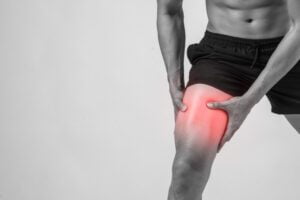If your body doesn’t have enough calcium, you might get hypocalcemia. To avoid it, eat foods like salmon, broccoli, or figs—they’ve got the right amount of calcium you need each day.
Hypocalcemia:-
Calcium is crucial for your body. It helps build strong bones and teeth and keeps your heart and muscles functioning properly. Not getting enough can lead to conditions like osteoporosis, osteopenia, or low calcium levels (hypocalcemia). In kids, insufficient calcium might affect their eventual height as adults.
Ensure you get the recommended daily calcium intake from food, supplements, or vitamins to maintain overall health.
what causes hypocalcemia:-
As people get older, they’re more likely to have less calcium. This might happen because of:
- Not having enough calcium for a long time, especially when younger.
- Meds that affect how your body absorbs calcium.
- Difficulty handling foods with lots of calcium.
- Hormonal changes, especially in women.
- Some genetic stuff.
Making sure you get the right calcium amount matters, no matter how old you are.
Boys and girls need the same amount of calcium each day when they’re kids and teens. According to the National Institutes of Health (NIH), here’s what they suggest:
Here are the calcium recommendations for different ages:
- 9-18 years: 1,300 mg
- 4-8 years: 1,000 mg
- 1-3 years: 700 mg
- 7-12 months: 260 mg
- 0-6 months: 200 mg
Early Signs and Symptoms of Calcium Deficiency:-
Here are signs and symptoms that could signal a lack of calcium:

Signs:
- Mild deficiency might not show any symptoms.
- Poor oral health: Low calcium can harm teeth, leading to decay and gum problems.
- Abnormal heart rhythm: Severe shortage can affect heart function and cause dangerous rhythms.
Symptoms:

- Fatigue: Feeling tired due to undernourished cells.
- Muscle pain and spasms: Issues with muscle function can cause discomfort.
- Cognitive problems: Confusion, dizziness, or brain fog due to low calcium.
- Numbness and tingling in extremities: Nerve issues in hands, feet, fingers, and toes.
- Seizures: Rarely, calcium shortage can trigger seizures.
- Mild symptoms might include muscle cramps, dry skin, brittle nails, and coarse hair.
- Severe deficiency could lead to confusion, memory problems, irritability, depression, and hallucinations.
- Physically, it might cause tingling in lips, muscle aches, breathing issues due to throat spasms, muscle stiffness, seizures, abnormal heart rhythms, and heart failure.

Remember, if you have chest pain along with breathlessness or fainting, seek immediate medical help. A healthcare provider can evaluate your risk for calcium deficiency and advise the best steps for you.
How’s Hypocalcemia Diagnosed?:-
If you think you have calcium deficiency symptoms, reach out to your doctor. They’ll check your medical history and ask about family calcium issues or osteoporosis.
To diagnose a possible calcium shortage, your doctor will do a blood test. This test measures total calcium, albumin, and “free” calcium levels. Low calcium levels over time might confirm a calcium deficiency.
For adults, normal calcium levels range from 8.8 to 10.4 milligrams per deciliter (mg/dL), as per the Merck Manual. If your level drops below 8.8 mg/dL, you might be at risk. Kids and teens usually have higher calcium levels than adults.
Complications of Calcium Deficiency:-
Complications from lacking enough calcium can be serious and varied, affecting both bone health and overall well-being. These include:
- Osteoporosis raises the risk of fractures.
- Rickets in children, lead to permanent skeletal changes.
- Osteomalacia, softening bones in adults and kids.
- Higher risks of hypertension, diabetes, neurodegenerative diseases, cancer, and joint problems in older adults.
- Low calcium levels are due to various causes like vitamin D or magnesium shortage, hormone issues, illness, or specific medications.
- Mild or ongoing low calcium might show no symptoms, but severe cases can cause numbness, tingling, muscle spasms, seizures, or coma.
- If severe, untreated low calcium can lead to life-threatening issues like seizures or heart failure.
If you notice symptoms, especially severe ones, seek medical help right away and head to the nearest hospital if needed.
Treatment of Calcium Deficiency:-
Treating calcium deficiency is usually simple—just add more calcium to your diet.
Avoid taking too many calcium supplements without your doctor’s OK, as it could lead to kidney stones.
Common calcium supplements include:

- Calcium carbonate: It’s cost-effective and has lots of elemental calcium.
- Calcium citrate: Easily absorbed.
- Calcium phosphate: Also absorbed well and won’t cause constipation.
These supplements come in liquid, tablet, or chewable forms.
Remember, certain medications can clash with calcium supplements:
- Blood pressure meds like atenolol might reduce calcium absorption if taken too close to calcium supplements.
- Antacids with aluminum might raise blood aluminum levels.
- Cholesterol-lowering meds like colestipol can affect calcium absorption.
- Hormone meds like estrogen may increase blood calcium levels.
- Digoxin can be affected by high calcium levels.
- Diuretics can impact blood calcium levels.
- Some antibiotics might not absorb well if taken with calcium supplements.
If changes in diet and supplements aren’t enough, your doctor might suggest regular calcium injections.
Improvements usually show within a few weeks. Severe cases of calcium deficiency are checked every one to three months.
Prevention of Hypocalcemia:-
To steer clear of calcium deficiency, aim to have calcium-rich foods every day.
Remember, while dairy products are calcium-rich, they can also contain saturated and trans fats. Opt for low-fat or fat-free options to reduce the risk of high cholesterol and heart issues.
Certain milk and yogurts can provide about 1/4 to 1/3 of your daily calcium needs in a single serving. According to the United States Department of Agriculture (USDA), other foods high in calcium include:
Also Read about What is Dengue – 3 Types of Dengue Fever- Symptoms – Treatment- Precautions
